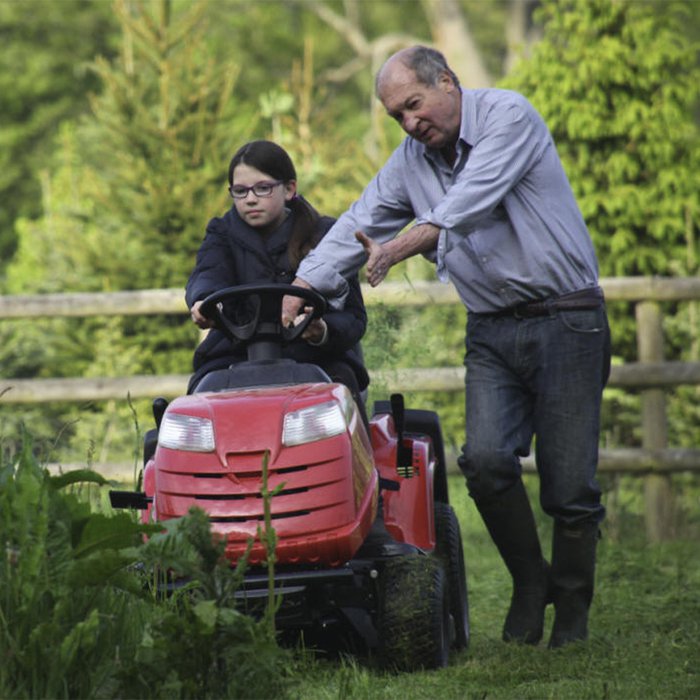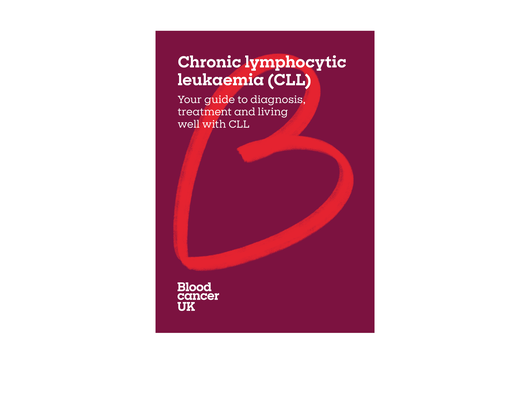Finding my new normal
Mike, 75, was diagnosed with chronic lymphocytic leukaemia (CLL) five years ago. He explains how he's adapted to the changes in his life since then.

Mike, 75, was diagnosed with chronic lymphocytic leukaemia (CLL) five years ago.
About a year ago, I ended up back in hospital. It turned out the CLL had mutated and become resistant to the drug I was on. I started a new drug, which started working within weeks, but it left me badly nerve damaged.
I haven’t got full use of my hands and, at first, I didn’t have much feeling in my feet. I had to use a Zimmer frame. I had deteriorated very rapidly and that was frightening. I was losing control of my body on a daily basis and I didn’t know when it was going to stop.
What helped was getting advice from my doctors. They said that it was my peripheral nervous system, and not my central nervous system, that was affected – so my heart and lungs wouldn’t give up on me.
Accepting help
For a while my wife had to do everything for me: washing, shaving, cutting up my food. It was all very strange, and make me feel a bit helpless and embarrassed. But I do tend to accept things pretty quickly and it’s a reality you have to accept. There are some things you just can’t do – it doesn’t matter how much effort you put in.
Finding ways to adapt
Because the damage is permanent, I have re-learnt how to use my body. It can be very, very frustrating but I have learnt to live with the frustration.
One of the stupid things that I struggled with for months was clipping the seat belt on in the car. I can do that easily now – it was just a matter of trying different approaches. Sometimes I find I get better by repeating the action.
I still can’t do buttons up or other fiddly tasks, so I’ve made or bought tools to help. I’ve got one that helps me twist bottle caps, a hook for undoing buttons and zips, and my wife has tied ribbon to the zip on my briefcase so it’s easier for me to open. My wife and I have worked as a team and asked, “What can’t I do and what is a way round it?”
Getting back into cooking
I’m cooking again now, and that’s a major step forward. I’d always been the family chef until a year ago when my wife had to take over, and she doesn’t enjoy cooking!
I’ve got loads of recipe books and love making Indian food, which can be so complex. I can do that again now. I can hold a spoon, I can use a knife, I can slice onions. Peeling potatoes is difficult as it’s very much a two-handed exercise. Again, with practice it does get a bit better, but I know what I can and can’t do.
Sometimes my wife will help me, but sometimes I say, "Just leave me, it’s going to be a bit slow but I can do it."
All the things I can do I will do, even if it takes longer. You get used to the frustration of things taking a bit longer.
Making some trade-offs
I’ve had to make tough decisions about some things I can no longer do in life. I got rid of my motorbike. I really miss it, but I couldn’t take the risk of getting in a scrape. I’ve put the family through enough.
There were doubts about my ability in a car, so I got in touch with a driving school and their head instructor took me out for an advanced driving test over two days. I said, “Assess me and don’t pull any punches.” He did and I got 98%. Despite my success, I decided to change to an automatic car, just to make life that bit easier.
Getting a Blue Badge was also a benefit – it means you can park nearly anywhere, which is great because I have to be very careful with my steps. I could easily trip and fall, and I don’t want to use a stick. I want to stay independent.
Changing my approach to gardening
The other hobby that is a bit difficult to do with my limited dexterity and movement is gardening. I was in the greenhouse yesterday and there are lots of little things I would have found easy to do a year ago that are now a struggle. Kneeling to pull out weeds is difficult, but I have knee pads now, which help.
We’ve also bought some new machinery and have a gardener who does about four hours a week. I do miss the gardening though, as the physical side of it was one of the attractions – 'the green gym' as they call it. But I still try and spend a lot of time in the garden.
Getting back into work
I am also back working on my computer doing engineering design work. It involves moving the mouse very precisely and, again, it’s just practice. Being able to do design work again has been great for my morale.
I also have a voice recognition system on the computer, which is not too expensive. I would recommend this for anybody, whether you’re disabled or not.
I can write letters and emails more easily and use voice commands too.
Do what you can, even if it takes longer
My advice to others is recognise your limitations. These are the cards you’ve been dealt. But also take the view that if you can do something, even if it’s just going to take longer, do it. Don’t fret too much – you will get quicker.
Over the last year, things have improved for me. Now I’m pretty independent and can do most things.
I still consider myself to be extremely lucky to be able to live as normally as I can. It’s a simple fact that I owe this to the research and development into drugs and treatment, without which I would just be a fading photograph in an old album. I am immensely grateful and using every second of the diminishing store that I have left on the planet.
Your guide to CLL
This free booklet covers:
- finding out you have CLL
- understanding CLL
- coping with watch and wait
- treatment options
- living well with CLL
- real stories of people living with CLL
You can order it for free from our online shop.

Janssen-Cilag Ltd has supported Blood Cancer UK with funding for the production of this web page and others within the ‘Living well’ section. It had no influence over the content.
